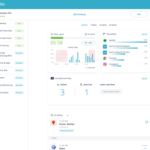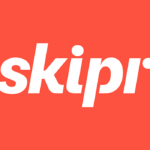10 Questions You Must Ask When Facing an LIS Software Vendor
Laboratory Information Systems (LIS) are essential in managing and streamlining lab workflows, from sample tracking to reporting results. The LIS market size is expected to reach USD 2.6 billion by 2026 growing at a CAGR of 9.0%. However, not all LIS software is created equal. The landscape for LIS vendors is becoming increasingly competitive.
Getting answers to the right questions is important before settling on a Laboratory Information System.
This article will provide ten vital questions to pose when facing an LIS software vendor, guiding you through key aspects such as LIS functionality, integration, and support.
What key features does your LIS software provide to cater to diverse laboratory needs?
Understanding the range of functionalities LIS software offers is crucial, as laboratories often have distinct requirements. Start by exploring the core features, such as sample management, test ordering, result generation, and billing capabilities. Delve deeper by inquiring about advanced aspects, including quality assurance, decision support mechanisms, and tools to manage regulatory compliance.
By thoroughly examining the LIS software’s offerings, you can identify whether it aligns with your laboratory’s unique needs, ensuring a tailored solution that supports efficient and accurate operations.
How effectively do LIS vendors ensure integration with your existing systems?
Selecting LIS software that effortlessly blends with your laboratory’s current infrastructure is essential for smooth operations. Integration with established systems such as Electronic Health Records (EHR) and billing software streamlines processes, ultimately improving efficiency. Before committing to a vendor, inquire about their LIS’s compatibility with your lab’s existing technology.
Ask whether they offer support during data migration from your previous LIS, ensuring a seamless transition. This subtle yet vital aspect of evaluating LIS vendors can help you make an informed decision and find a solution that aligns with your laboratory’s unique needs.
Is your LIS software scalable and adaptable for future growth?
As laboratories expand and adapt to new challenges, having an LIS program that can keep up is crucial. Discuss with the vendor their software’s ability to manage increased workloads, incorporate new tests, and support multi-location operations.
Additionally, ask about the software’s flexibility to embrace technological advancements and shifting industry standards. The basis for long-term success and easy adaptation in the face of change is laid when the LIS software can expand and develop as your laboratory does.
What steps does your LIS software take to ensure robust data security and compliance?
Safeguarding sensitive laboratory data is paramount, so it’s essential to understand the security measures that the LIS software employs. Please discuss their data encryption techniques, storage policies, and contingency plans for disaster recovery with the vendor.
Confirm that their security practices adhere to relevant regulations, such as the Health Insurance Portability and Accountability Act (HIPAA) and General Data Protection Regulation (GDPR). You can be certain that your laboratory’s data will be secure and up to code if you take the time to assess the LIS software’s data security features.
How do you facilitate effective training and continuous support for your LIS software?
Ensuring users can proficiently operate an LIS is crucial for maximizing its benefits. Talk to the vendor about their training initiatives, covering formats such as in-person sessions or online courses and the possibility of customizing training to fit your laboratory’s needs.
Furthermore, explore their ongoing support offerings, including helpdesk assistance, software updates, and regular maintenance. You may select LIS software that will help your lab succeed in the long run by considering the vendor’s dedication to training and ongoing support.
How can you clarify total costs, from implementation to ongoing expenses?
Understanding the full cost of ownership is crucial for picking the right LIS. Request a comprehensive breakdown of expenses from the vendor, focusing on key areas like:
- Software licensing
- Implementation
- Training
- Ongoing support costs
By obtaining a detailed cost analysis, you can effectively compare different LIS vendors to determine the best value for your investment. Balancing costs with the software’s features and support offerings ensures your laboratory’s resources are utilized efficiently while meeting your specific needs.
In what ways does your LIS software ensure seamless interoperability with other systems?
Smooth communication between various systems is essential for efficient laboratory operations. When discussing interoperability, ask the vendor about their LIS software’s compatibility with widely used standards, such as Health Level Seven International (HL7), Logical Observation Identifiers Names and Codes (LOINC), and Systematized Nomenclature of Medicine – Clinical Terms (SNOMED CT).
Evaluating the software’s ability to work harmoniously with these standards guarantees effective data exchange and integration with other healthcare systems, thus contributing to a well-coordinated and streamlined workflow in your laboratory.
How flexible is your LIS software in accommodating our laboratory’s distinct requirements?
Adapting an LIS to suit a laboratory’s specific needs is essential for optimizing performance. Engage with the vendor to determine if their software can be tailored to your lab’s unique processes and workflows. Delve into the customization process, including potential expenses and the level of support offered during this stage.
Ensure the vendor is committed to collaborating with your team to create a bespoke solution that aligns with your laboratory’s distinctive needs, fostering a well-integrated and efficient system.
What is your approach to managing software updates and enhancements for your LIS?
Staying abreast of technology advancements is crucial for an LIS’s efficacy, making it essential to understand how vendors approach updates and enhancements. Engage with the vendor to understand their update policies, including the frequency of updates, new features, bug fixes, and security improvements.
Additionally, inquire about the process of implementing updates, any potential downtime, and associated costs. Doing so will give you an idea of how seriously the vendor takes keeping their LIS software current with the needs of your laboratory and the industry at large. Evaluating the vendor’s approach to updates and enhancements helps ensure a well-maintained LIS that can keep up with technological advancements and changes in industry standards.
What kind of user interface does your LIS software provide?
An LIS’s user interface (UI) plays a crucial role in ensuring efficient operations. It is the primary means of interaction between laboratory personnel and the system. It is vital to understand the design and functionality of the user interface. You may learn more about the interface’s usability, features, and friendliness to users if you ask the seller about it.
Additionally, ask about the possibility of customization, such as configuring the user interface to display frequently used functions or shortcuts. Evaluating the user interface to ensure the system is intuitive. It encourages efficient workflows and is critical to maximizing productivity and accuracy in the laboratory.
Conclusion
In conclusion, choosing the right LIS software vendor is critical for your laboratory. You can better understand different LIS vendors’ capabilities, compatibility, security, and support by asking the right questions. Evaluating your options thoroughly will ensure you select LIS software that meets your laboratory’s unique needs and sets you up for success in the long run.
Cover Image Source












